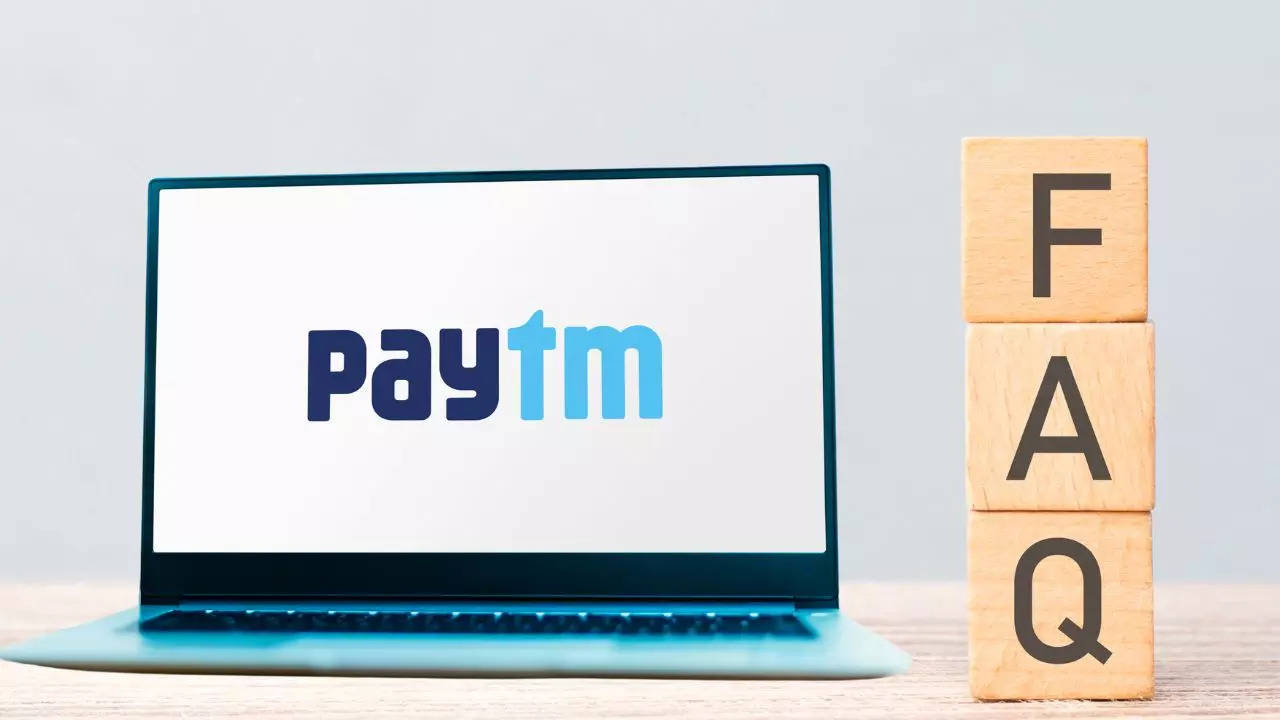Soon after extending the deadline for stopping operations, the Reserve Bank of India (RBI) released a list of commonly asked questions (FAQs) for owners of Paytm Payments Bank accounts.
Clarifications on outstanding balances, UPI payments, and vehicle FAS Tags are included in the FAQs.
The central bank added that PPBL customers will be able to withdraw or use their available balance, up to March 15, from any of their accounts, including current and savings accounts, prepaid cards, FASTags, National Common Mobility Cards, and prepaid instruments, without any limitations.
RBI explains its tough actions against Paytm Payments Bank Paytm
The Reserve Bank of India (RBI) has provided an explanation for the recent measures it took against Paytm Payments Bank, indicating that the bank disregarded many warnings and failed to abide by the rules, which led to the crackdown.
After allowing the business enough time to address its non-compliance concerns, the decision was reached to prohibit Paytm Payments Bank from taking new deposits, according to news agency Reuters. Top RBI officials referenced in the paper said that the RBI was particularly concerned about supervisory issues and regulatory rule infractions.

RBI Governor Shaktikanta Das stated that regulated entities are given sufficient time to comply with regulatory requirements. The RBI engages in constructive discussions with companies to address compliance issues, encouraging corrective measures. However, if these efforts fail, the RBI may impose supervisory or business restrictions. Das emphasized the RBI’s responsibility and the need for adherence to all regulatory norms.
Paytm, a popular Indian digital wallet, has faced regulatory crackdowns due to concerns about the creation of hundreds of thousands of accounts without proper identification at Paytm Payments Bank.
RBI won’t consider taking action against Paytm Payments Bank
The Reserve Bank of India (RBI) has stated that its regulatory action against Paytm, the fintech’s payments arm, will not be reviewed, following speculation that the RBI could review its decision following a meeting with Paytm founder Vijay Shekhar Sharma. The RBI ordered Paytm to shut down operations, including deposits, credit products, and digital wallets, due to persistent non-compliance.

However, The RBI and MPC have been engaged in bilateral engagement to address regulatory issues, including Paytm’s case. RBI Deputy Governor Swaminathan J stated that regulatory action is preceded by months and sometimes years of bilateral engagement, where the central bank points out deficiencies and gives time for corrective action.
RBI Governor Shaktikanta Das reiterated this, stating that the focus is always on engaging with regulated entities bilaterally and nudges them to take corrective action. Paytm has decided to form an advisory committee to look into compliance and regulatory matters, with former SEBI chairman M Damodaran leading the panel.
RBI has strictly prohibited Paytm! Service will end on February 29th
These recommendations were released by RBI on January 31. Additionally, the corporation has been told by the Central Bank not to credit this sum to current clients’ accounts after February 29. Many additional anomalies pertaining to Paytm Bank have also surfaced, which has many people worried that more appropriate action may be done against them in the future.
However, current Paytm Payments Bank clients are permitted to utilize all of their available funds, according to the RBI. It makes no difference if the funds are located in a current account, savings account, prepaid card, Fastag, National, or Common Mobility Card. Regarding this, there is no date requirement.

Paytm users won’t be able to make deposits into their accounts, prepaid devices, wallets, Fastag, or National Mobility Cards after February 29, according to the RBI. However, their account can get refunds, rebates, and interest. After February 29, Paytm Payments Bank will no longer offer any financial services, according to the RBI. One97 Communication Limited and Paytm Payments Services Limited have been requested by the Reserve Bank to cease nodal services as soon as feasible.











